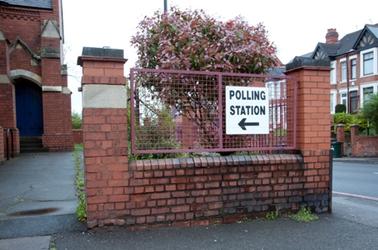ELECTION BLOG: GE15 all seems a bit old
The starting gun for the 2015 election campaign has now been well and truly fired. Campaign HQ communications staff will no doubt be closely following their ‘grid’, micro-managing press events in sequence with external events to highlight their own messages and kill opposition attacks.
It feels a bit like that in our own polling world these days. A recent Monday was labelled “Poller-coaster” by one eminent online blogger, reflecting almost hourly releases of polls. Expect much more of this to come. If you like elections and you like data, this one’s for you, but pollsters may well need to create their own ‘grid’ to fully communicate the impact and value of their latest numbers.
But actually, this all feels a bit old. For the pollsters, this might be the first election where our contribution is not measured so much by final poll accuracy (one academic helpfully informed me that pinpoint accuracy is sorted from mediocrity by luck rather than methodological excellence, which presumably explains why they have PhD’s and I have cynicism) – but in terms of how our work truly changes the nature of the political narrative.
We saw some of this in 2010, with the race to be the first out with the “who won the leaders’ debates” polls generating as much excitement in some quarters as the final results themselves, although the emergence of ‘Cleggmania’ overtook everything else. Something like this may well be the case again. What better showcase for the power of digital research than adjudicating on a debate winner only 15 minutes after the event ends, thereby getting your company’s name slapped across the result as press coverage leaps from newswire to newswire.
But again, this also feels a bit old. The research industry has already been there, done that. So what else do we have up our collective sleeves to help set the narrative this time round?
Well, I guess we’ll all just have to wait and see – but what has exercised my mind is the extent to which truly innovative new research applications can be applied to the political realm in search of more wide-ranging understanding than orthodox polls could ever achieve.
In effect, this is simply another way of saying that political polling – just like all other sectors of our industry – has to evolve to survive, something that makes the 2015 General Election one of the most important practical showcases that the industry has ever had.
Martin Boon is a director at ICM Unlimited

We hope you enjoyed this article.
Research Live is published by MRS.
The Market Research Society (MRS) exists to promote and protect the research sector, showcasing how research delivers impact for businesses and government.
Members of MRS enjoy many benefits including tailoured policy guidance, discounts on training and conferences, and access to member-only content.
For example, there's an archive of winning case studies from over a decade of MRS Awards.
Find out more about the benefits of joining MRS here.












1 Comment
NickD
11 years ago
"We saw some of this in 2010, with the race to be the first out with the “who won the leaders’ debates” polls generating as much excitement in some quarters as the final results themselves" And in some quarters this in a nutshell sums up the problem with political polling in its current state. Rather than being a servant of debate, pollsters seem to think that they're in the driving seat, dictating the terms of debate.
Like Reply Report